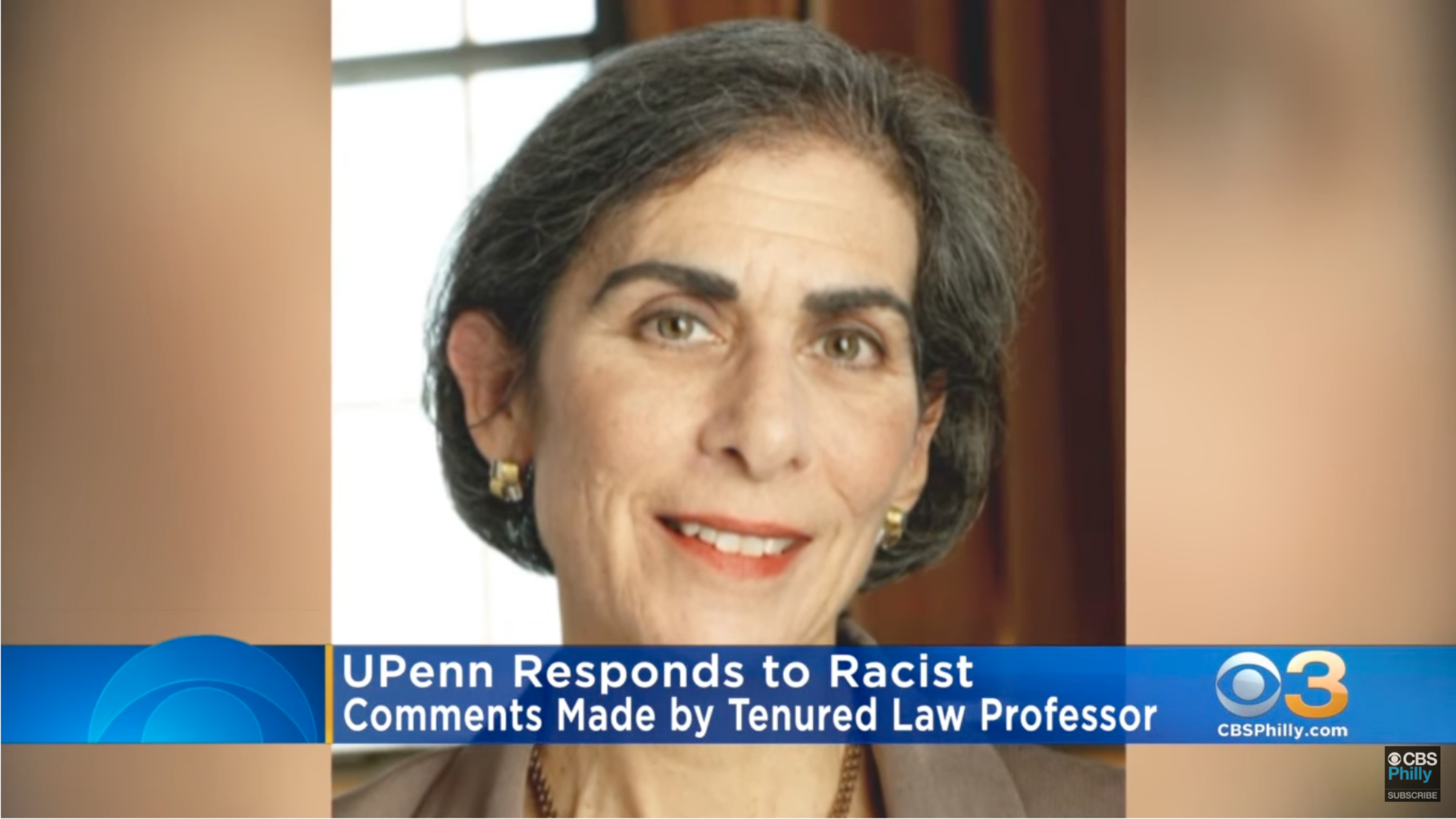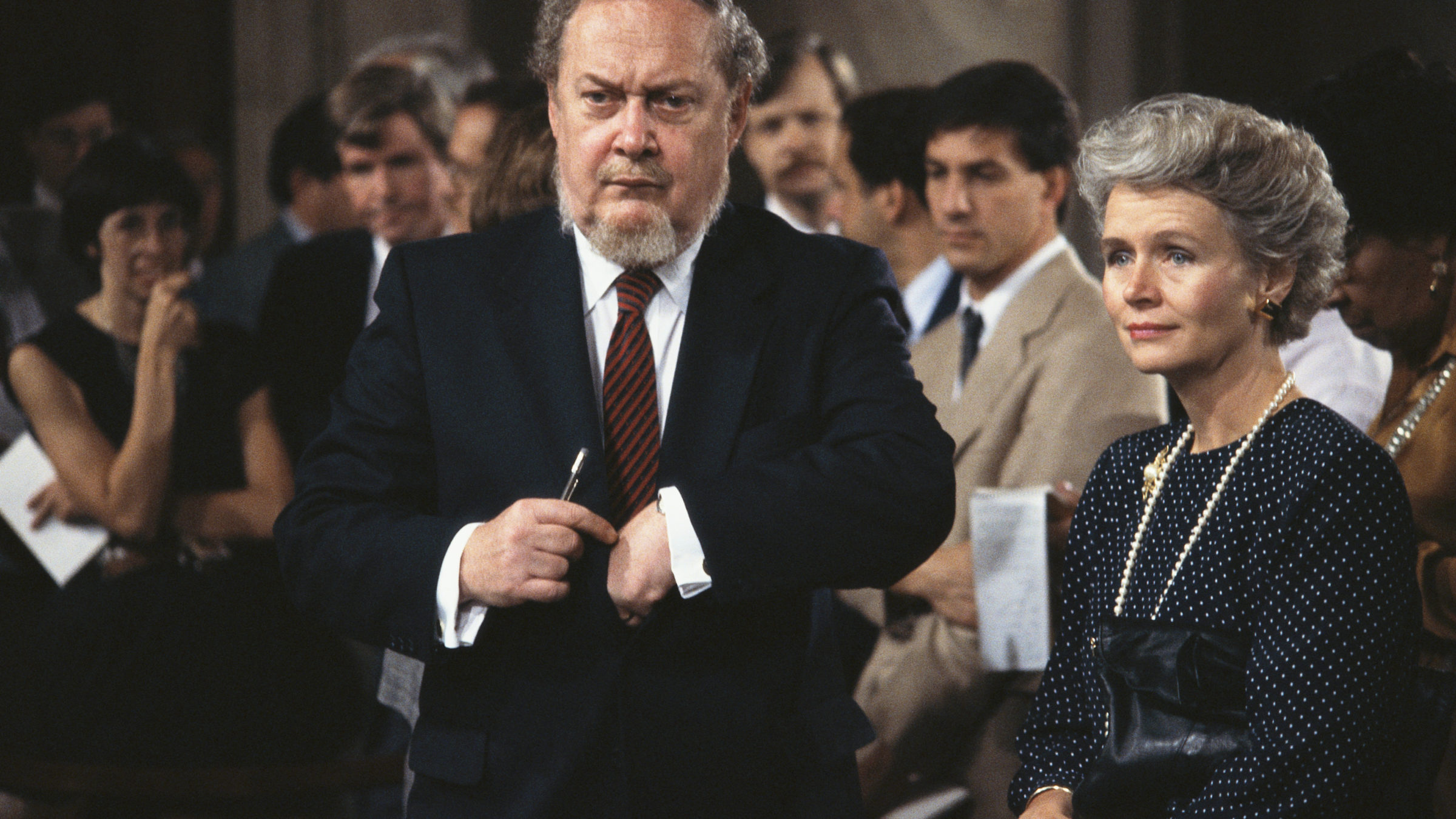In September, University of Pennsylvania law professor Amy Wax continued her ongoing efforts to get fired by appearing on Charlie Kirk’s podcast, which has hosted such luminaries of the legal academy as Paul Manafort, Matt Gaetz, and bedtime accessory magnate Mike Lindell. The theme of Wax’s interview, it will astonish you to learn, is the creeping dangers of cancel culture. “Professor Wax has staked her claim as the last conservative inside the Ivys,” the episode description reads. “It could very well cost her everything in todays [sic] climate of liberal intolerance.”
The conversation itself is a bingo card of right-wing buzzwords. “Students are being primed and they are being groomed to be social justice warriors and lefties,” Wax tells Kirk. Accusing her fellow teachers of “grooming” is a new angle for Wax, who has focused her bigotry on Asians (“I think the United States is better off with fewer Asians and less Asian immigration”) and Black people (“Blacks” and other “non-Western” groups, she said in April, feel “resentment, shame, and envy” towards the West and its achievements). While the university’s investigation apparently remains ongoing, so far, her only “punishment” has been not having to teach 1L courses anymore.
Wax has—inevitably—set up a GoFundMe for her legal defense, which describes her as “one of the only openly conservative tenured law professors in the Ivy League” and decries the university’s “unprecedented and deeply destructive threat to the practice and traditions of free expression on campus.” As of this writing, the fund has netted more than $185,000 from around 1,300 donors; this for a woman who has been a law professor at elite schools for almost three decades.

Screencap via YouTube
The terminology may be new, but conservative paranoia about “cancel culture” on law school campuses is not. In 1968, Robert Bork, who would later become famous for demonstrating the profound difficulty of confirming to the Supreme Court a very conservative jurist who is honest, was also griping about radical youths corrupting our once-great institutions.
In a letter to Alexander Bickel, a fellow law professor who once argued that the Warren Court led to Watergate, Bork joked that the Yale Law School course catalog should open with a disclaimer: “Because of its colonial, capitalist, white racist inheritance … most of the faculty and curriculum of the school are irrelevant to the central issues of our time. No more than 20% of the course and seminar offerings are even peripheral to the problems of the inner city.” His suggestion continued: “These insignificant offerings are over-balanced by traditional exercises in repression, not even concealed under such headings as Commercial Law, Criminal Law, and Debtors’ Estates.”
Bork, who at one point in his career defended a poll tax on the grounds that it was “very small,” was obviously being sarcastic. But his language is important, not only because its highlights the interminable nature of these complaints but also because it gives the game away: Even as he lampoons a fake, SJW-inspired curriculum in private correspondence with a fellow conservative, he can’t bring himself to cast more than 20 percent of the curriculum at America’s most prestigious law school as too woke, because he understands that the actual number of law school courses “relevant to the central issues of our time” is so meager that parody could not exaggerate it any further.
Bork further reveals the hollowness of his critique by characterizing left-adjacent courses as those dealing with the “problems of the inner city.” As a refresher, these “inner city” problems included a precipitous drop in employment and investment in cities, massive cuts to services due to white flight and decreasing tax revenue, increasing crime (and increasing reliance on prisons as a primary form of economic development), and police that often approached city residents like invaders approaches locals in occupied territory. These intertwined crises had led to mass protests and urban uprisings, and, in retaliation, bombings of Black churches, calls to impose segregation forever, and white supremacist assassinations (A month before Bork wrote this letter, Martin Luther King, Jr., was murdered in Memphis, Tennessee.)
Again, even in his joke, Bork is aware there are real problems in American urban society, and that the traditional law school curriculum had very little to say about them. Although it is an attempt at a send-up of bleeding-heart hippies, his reference to the “colonial, capitalist, white racist” legacy of the U.S. legal system is difficult to read as anything other than basically true.

When cancel culture comes for your ass (Photo by © Wally McNamee/CORBIS/Corbis via Getty Images)
In the intervening half-century between Bork’s letter and the present, fearmongering about the imminent woke mob takeover of law schools has become a well-worn path to conservative legal academic fame. Jonathan Turley, among the hackiest of Trump’s defenders, remains a member in good standing; so does Shapiro, in all his self-cancelation majesty. Judge James Ho, an arch-conservative federal appeals court judge, recently vowed not to hire law clerks from Yale anymore—apparently not even loyal foot soldiers in the school’s Federalist Society chapter. The right-wing grift is so capacious that a right-wing judge can make a big show writing off an entire school’s conservatives and somehow make it a story about how the left is too censorious.
Bork went on to become a judge on the second-most-powerful court in the country, a seat he could have held for all his life if he had wanted, even after the Senate rejected his Supreme Court nomination in 1987. Instead, he decided to quit and write about how he thought liberals were harming the legal system by getting too political. While the right often holds out Bork’s failure to ascend to the Supreme Court as the ultimate cancellation, his career is an excellent encapsulation of the fantasy at the heart of this narrative: Society offers only the meekest resistance to right-wing domination. “Cancellation,” such as it is, remains primarily a figment of the conservative imagination.




